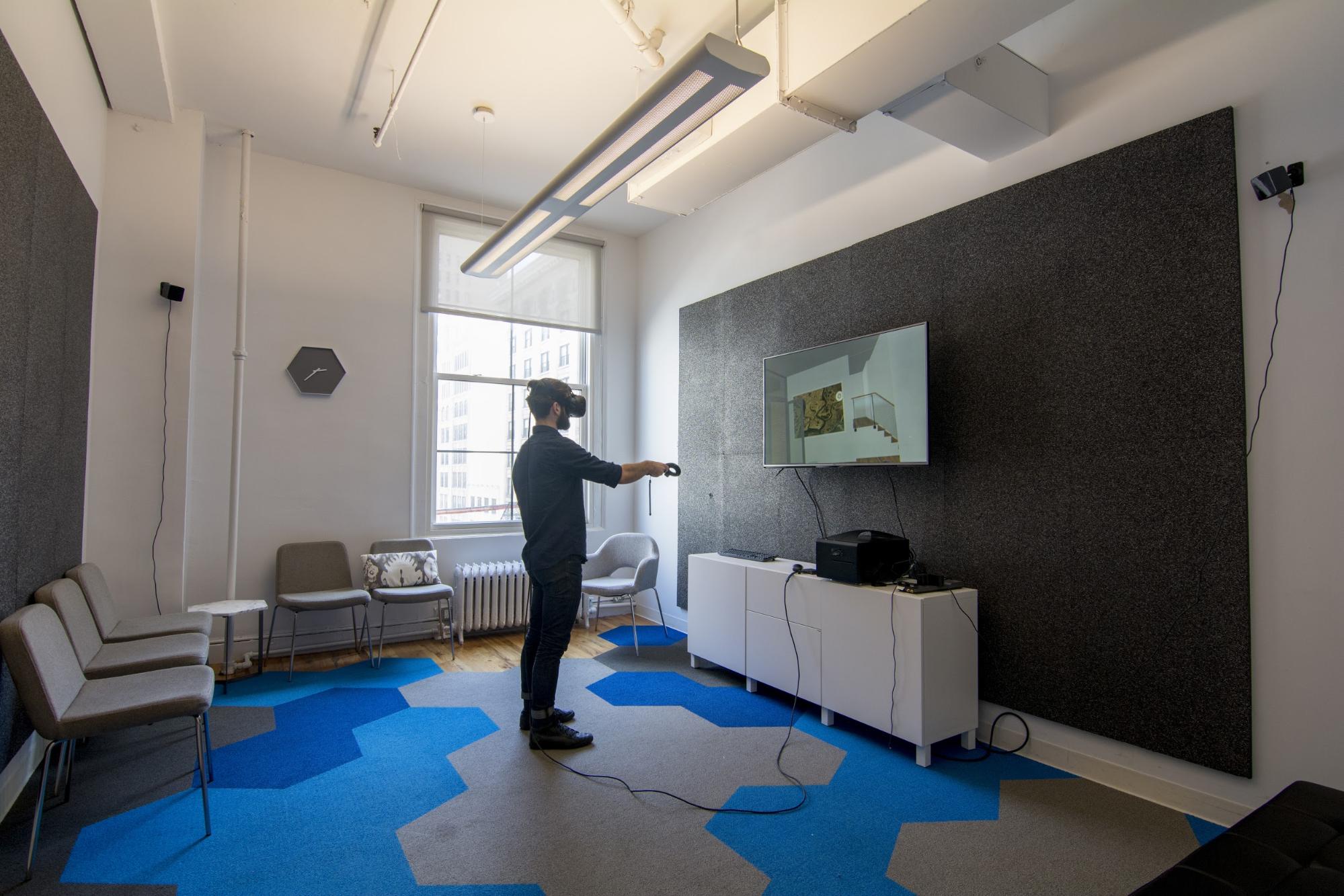
Back in December, we answered one of our most frequently asked questions - which VR headset should I buy? Today, we’ll answer another #1 hardware FAQ: what kind of computer do I need for virtual reality?
We’re excited to tackle this question because of our partnership with Puget Systems, a custom computer company that builds enterprise workstations perfectly suited to VR. With this partnership, we can now provide customers with an easy and guaranteed way to purchase the correct VR computer for their needs.
And, with over 5 years of experience testing and recommending computers, we have a lot of thoughts.
Read on to learn about:
- The necessary elements of a VR-ready computer
- Which computers and parts we’ve come to love - and which ones we’ve come to avoid
- The Best Practices Webinar we created with Puget Systems on VR computers, how to set up VR hardware at your office, and more
Or, if you prefer to get all this info in eBook form, we have that too.
VR Computer Specs
To enter virtual reality, you’ll need not only an immersive VR headset - such as an Oculus Rift, Oculus Quest, HTC Vive, or Samsung Odyssey+ - but also a computer to render the experience.
As a VR-first company, it’s important to us that your VR experiences with clients and collaborators are as productive as possible. That’s why we recommend always using a computer that’s capable of delivering 90 frames per second (FPS) in VR at all times - 90 FPS is a key benchmark for creating comfortable, nausea-free VR experiences.
So, what makes a computer powerful enough to run premium VR at a high frame rate? Your CPU and GPU.
What CPU and GPU do I need for my VR computer?
For a smooth VR experience, you’ll need high performance from both the CPU (central processing unit) and the graphics card.
However, because VR requires your computer to run two displays - one for each eye - the demands on the graphics card are the greatest. Higher resolution headsets, like the HTC Vive Pro, need an even more powerful GPU.
For the CPU, keeping clock speed as high as possible is key. 3.5GHz is our minimum recommended benchmark, but 4GHz+ is better.
Our CPU suggestions are Intel's 8th and 9th Gen Core Processors: the i7 8700K, i7 9700K, i9 9900K, and so on. For GPU, we recommend a NVIDIA GeForce RTX 2080 equivalent or greater.
How much RAM is necessary for running VR?
In terms of RAM, our high-end (recommended) suggestion is 32GB+. At bare minimum, we recommend 16GB+ RAM, but 32GB+ RAM is preferable.
You may have noticed that HTC and Oculus list the minimum RAM for VR as 8GB - but this is isn’t enough for running multiple professional software packages, like Prospect, Revit, and Rhino. That’s why our low-end RAM recommendation is 16 GB+.
You can find out even more about the necessary elements of a high-performance VR workstation - like what ports and outputs you’ll need, and what operating system is best - on our recommended VR computers page.
Each of Puget Systems’ IrisVR Computers have been custom built and tested to go above and beyond these expectations, so if you’re ready to start assembling your VR workstation today, they’re you’re best bet.
VR Computers On The Market
We’ve been testing VR computers for 5 years, so we’ve seen the good and the bad. Here you can find out what to look for - and what to avoid - if you’re on the market for a VR computer.
What To Look For
When it comes to laptops, we’ve had good luck with the ASUS GX501 with GTX 1080 GPU. In general, be aware that performance and cooling issues are a possibility when it comes to running VR on a laptop.
If it’s a desktop you’re looking for, our favorite is the BOXX S3 with GTX 1080Ti GPU. The three workstations Puget Systems is assembling for IrisVR users are also all desktops.
One of them - the Advanced IrisVR Workstation - can even be paired with a carry-on size luggage accessory, making it perfect for VR on the go.
What To Avoid
Over the years, we’ve picked up on certain computers and parts that you should steer clear of when assembling your VR workstation. These include:
- The ASUS ROG G752 laptop - we’ve gotten feedback that it has difficulty detecting HTC Vives.
- Any Alienware desktops or laptops - we consistently troubleshoot these computers, and have received reports of inadequate power supply units, driver issues, and more.
How to get started
VR computers are just the beginning. If you're really interested in bringing VR into your firm, our latest free eBook walks you through everything you need to know. Get your copy today ⬇️
.png?width=212&name=Prospect%20by%20IrisVR%20Black%20(1).png)
